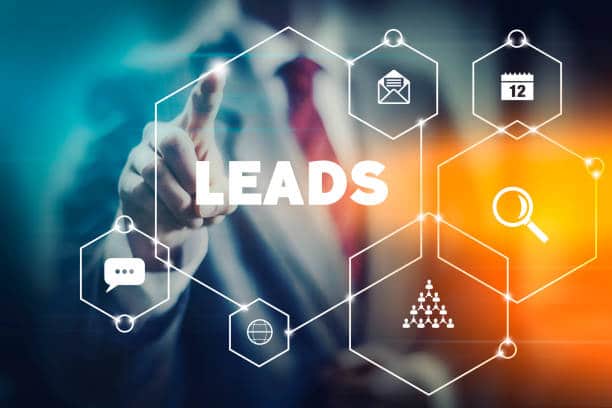Are you struggling to attract or retain customers? Maybe you need to learn more about inbound marketing strategies with the help of an inbound marketing agency. Instead of interrupting your target audience with unwanted content, learn to focus on being in the right place at the right time.
Inbound marketing is closely tied to SEO, Google Ads, and Landing Pages. When your content provides value to your audience and incorporates specific keywords, your business will benefit by retaining customers and boosting your ranking in SERP.
What Is Inbound Marketing?
Ok, that sounds great, but what exactly is inbound marketing, and how does it work? Inbound marketing serves to attract, engage and delight the ideal client with valuable content and conversations.

How? By using various time-tested strategies like publishing and creating content like blog articles and social media posts that provide value. Examples include:
- How-to guides on products
- Customer testimonials
- Promotions
- Discounts
- Common problems and solutions using your product or service
Pay close attention to your SEO and Google Ads strategies. You’ll need and want to use specific keywords related directly to your specific product or service, in turn boosting your business organically on the search engine results page.
Use surveys and chatbots to increase engagement and satisfaction among customers. On your social media posts, answer questions and engage with followers. An experienced digital marketing agency will tell you that forming connections is an integral part of the inbound marketing strategy.
Keeping it Balanced: Inbound vs. Outbound Marketing
Many businesses focus solely on outbound marketing strategies. However, by employing both inbound and outbound marketing strategies, your business can increase lead generation and retain customers.

Outbound marketing is “traditional” marketing. Typically, outbound marketing is more expensive and overall less effective — like throwing a whole lot of stuff at the wall to see what sticks. The return on investment (ROI) is usually much lower than that of inbound marketing.
Inbound marketing, on the other hand, is made up of items like:
- Videos
- Blogs
- Social media posts
- Ads
These inbound marketing strategies will attract, engage and delight your audience, hitting them at every stage of the marketing funnel to create loyal, repeat customers.
What’s the Difference Between Inbound Marketing and Lead Generation?
Hopefully, by now, you understand a little bit more about what we mean by inbound marketing. But how is inbound marketing different from lead generation, and how does it work?

Inbound marketing targets customers who already have an interest in your product or service more often by placing their ads where the customer is looking. Sometimes, these customers might have already purchased from your business, followed your social media accounts, or even purchased from a competitor using retargeting.
Lead generation, on the other hand, is focused on pushing advertisements or material to audiences.
The most effective way to accomplish this is through Facebook and Instagram advertisements. The viewers of these advertisements will submit information to your company.
Although the quality of these leads is not as high as those for inbound marketing, they do have some special benefits. One such benefit is it’s a cost-effective method to increase newsletter subscribers and the number of subscribers to your marketing channels.
Is Your Search Engine Optimization Technique On Point?
Wait, SEO? I thought we were only talking about inbound marketing here. In our view, SEO for inbound marketing is one of the best. However, it doesn’t have to be complicated. Spending the time to hone your SEO skills will help you target keywords customers are already searching for and optimize pages on your website with these keywords.

You are probably doing some of these things. What are they?
- Continually generating new content on your site and social media accounts
- Update meta title tags
- Optimize content to include focus keywords
- Make content readable and scannable
Google Ads can also be a crucial component of your inbound marketing strategy. By using ads to target keywords, you’ll gain insight into internet users by seeing their geography, their internet searches, and the content they find interesting. What’s more, the feedback you get from Google Ads lets you know what works and what doesn’t when it comes to inbound marketing.
Landing Pages: A Critical Component of Your Company’s Success

Landing pages may seem unimportant to an inbound marketing strategy, but they are a critical component. This doesn’t mean your homepage. A landing page directs visitors to enter their information through a conversion form.
What do landing pages do? They:
- Target specific audiences
- Promote specific components
- Give discounts
- Include CTAs
By using landing pages, your business can generate leads, give offers a home base and collect important demographic information about website visitors.
Why Choose Marketing Done Right as Your Inbound Marketing Agency
The level of detail and specific knowledge required for inbound marketing success can be staggering. From selecting the right success metrics to planning and executing your strategies, our team at Marketing Done Right will be your guide!
Our inbound marketing agency in Cleveland offers support for businesses of all sizes in a wide range of industries. Our Marketing Done Right team of professionals can help with inbound marketing that will truly drive value for your business. Contact uson the web or by phone at (216) 208-5670.

